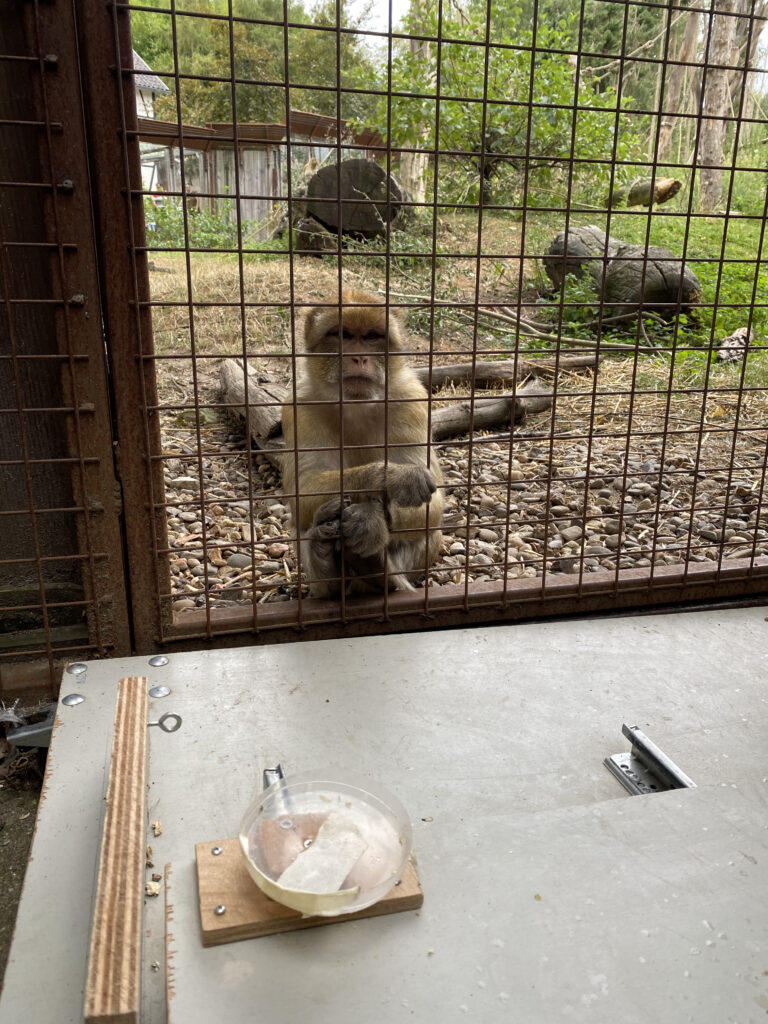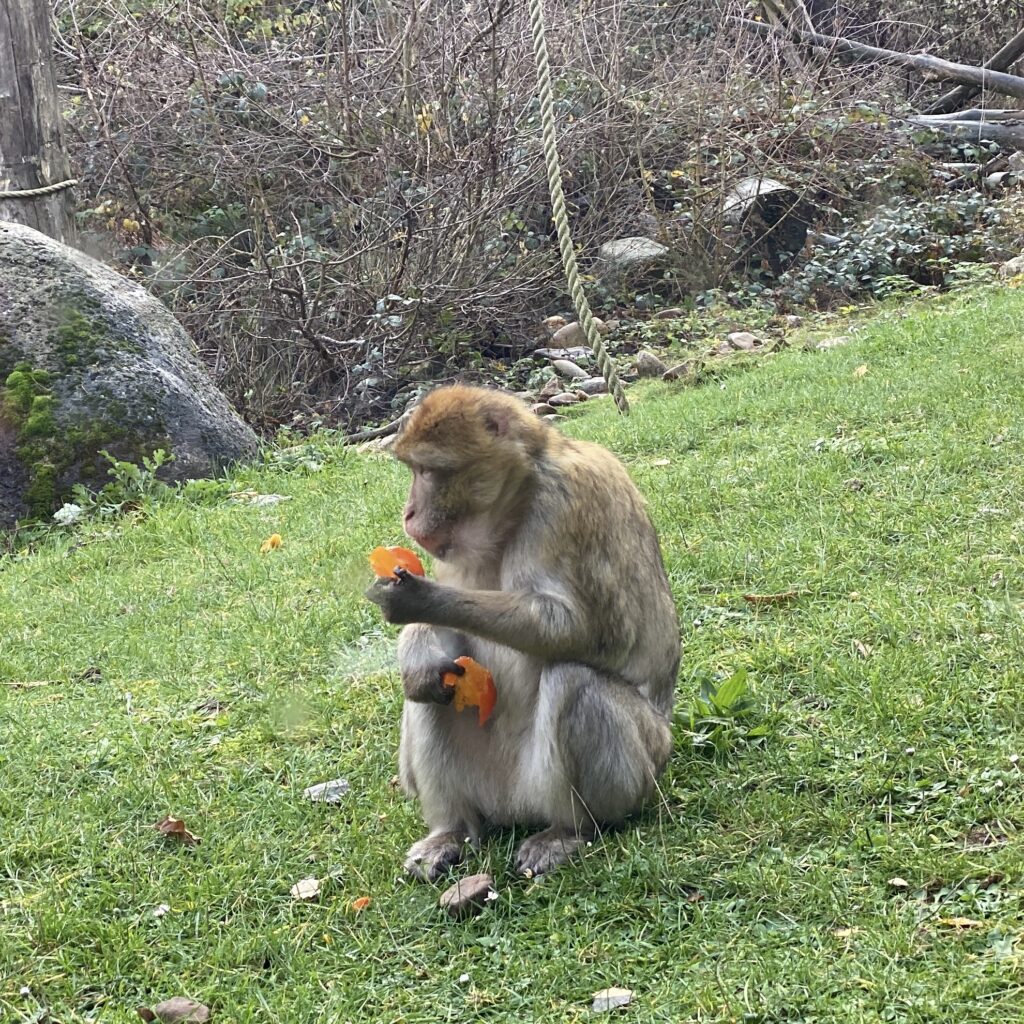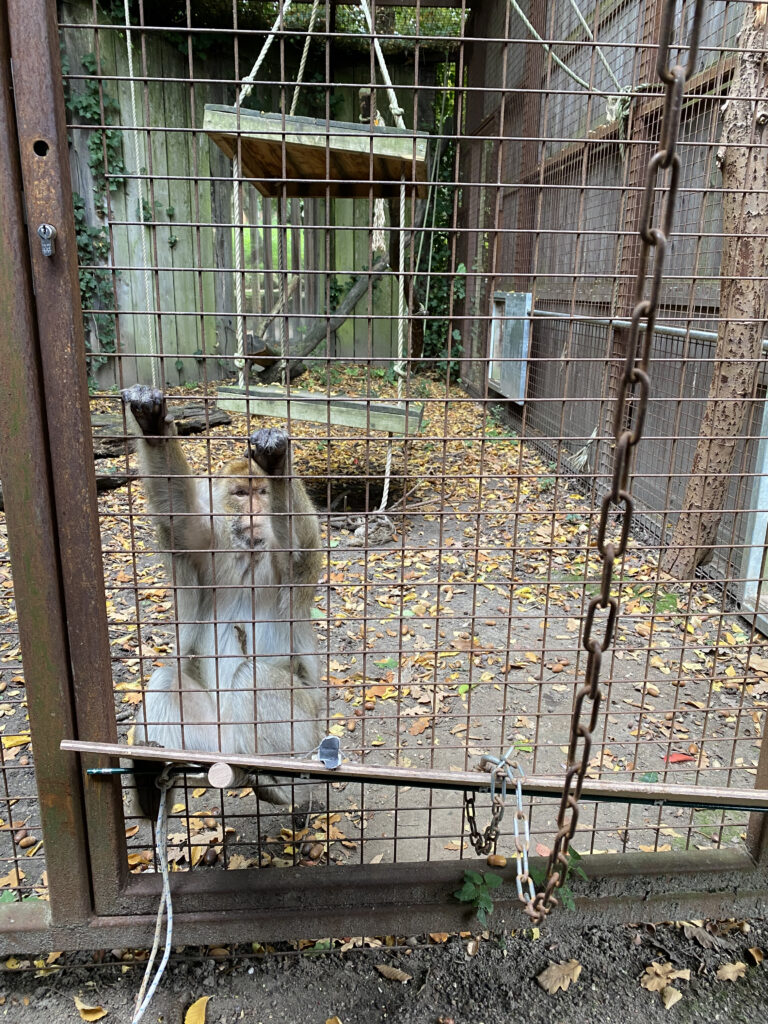Background
Aims
The study of cooperation in animals is a valuable tool to get insights into its evolution, as cooperation is one of the distinctive features of humans.
Cooperation is defined as an interaction between individuals that results in net benefits for all of the individuals involved.
Cooperative tendencies can be assessed by artificial experimental settings, one of which is the loose-string paradigm (Hirata, 2003).
Among the possible proximate mechanisms for the initiation and maintenance of cooperation, there is prosociality, defined as the tendency to engage in voluntary actions that benefit another individual.
Prosocial tendencies can be assessed by using the group service paradigm (Burkart et al., 2014).
Among the factors that may promote cooperation, personality, kinship, sex, rank, or age, may play a role.
The present project investigated the presence of cooperative and prosocial tendencies in a zoo-housed population of Barbary macaques (Macaca sylvanus). Moreover, I assessed whether individual (i.e., personality) and social (i.e., rank distance) factors predicted partner choice in cooperation.
Specifically, I assessed:
1. Cooperative tendencies through the loose-string paradigm
2. Prosocial tendencies through the group service paradigm
3. Personality traits through behavioural observations and novelty tests



Find out more about Material & Methods ➜